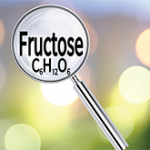Gout causes some of the worse pain in all of medicine, and yet many patients engage in behavior that can cause attacks with startling regularity. These patients have made the judgment that preventing gout by diet is not worth the effort and that they would risk a wicked attack rather than passing up a shrimp etouffee or a bowl of jambalaya. To these people, living a life without the joys that make gout a lurking danger would be both sad and foolish.
Crabmeat Sardou at Galatoire’s or colchicine?
ad goes here:advert-1
ADVERTISEMENT
SCROLL TO CONTINUE
I know my choice. What’s yours?
Dr. Pisetsky is physician editor of The Rheumatologist and professor of medicine and immunology at Duke University Medical Center in Durham, N.C.

